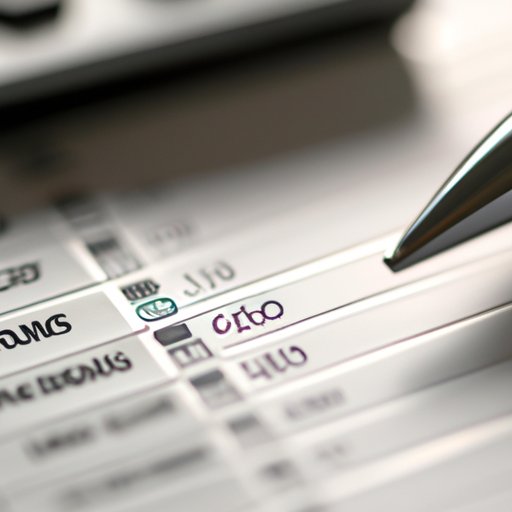
Introduction
Many people struggle with determining how much money to keep in their checking account. Some keep too little and face overdraft fees while others keep too much and miss the benefits of higher-yield savings accounts. This article provides tips and strategies for determining your ideal checking account balance and managing your finances more effectively.
The Rule of Thumb: How Much Money Should You Keep in Your Checking Account?
The best approach for determining a checking account balance varies among individuals. Some recommend keeping a specific amount of checking account funds based on monthly expenses or a percentage of income while others suggest maintaining a certain amount to cover unexpected expenses. Tips for finding the best strategy for individual financial situations include tracking expenses, creating a budget, and automating bill payments.
5 Reasons to Keep Your Checking Account Balance Low
Keeping a conservative checking account balance has benefits, including reducing the risk of theft or fraud, avoiding unnecessary fees or interest charges, and fostering better financial habits. Strategies for keeping your checking account balance low include setting up automatic transfers to savings accounts or using cash for small purchases.
How to Adjust Your Checking Account Balance for Life Changes
Major life events, such as a job loss or a new baby, require adjustments to your checking account balance. Guidance for these changes include creating a new budget and seeking financial counseling. Strategies for staying on track with finances during these periods include creating a new budget or seeking financial counseling.
The Benefits of Moving Excess Checking Account Funds to Savings
Transferring surplus funds from checking accounts to higher-yield savings accounts has advantages, such as earning higher interest rates. Tips for maximizing interest earnings include finding the best savings accounts and setting up automatic transfers.
Managing Your Checking Account: Balancing Income, Expenses, and Savings
Managing your financial accounts holistically involves developing a budget, automating bill payments, and allocating funds between different accounts. Strategies for achieving financial goals and building long-term wealth include increasing savings contributions and investing in diversified stocks and bonds.
Conclusion
Determining your ideal checking account balance and managing your finances effectively requires understanding your financial situation and goals. Follow the tips and strategies outlined in this article to achieve your financial goals and improve your overall financial health.




